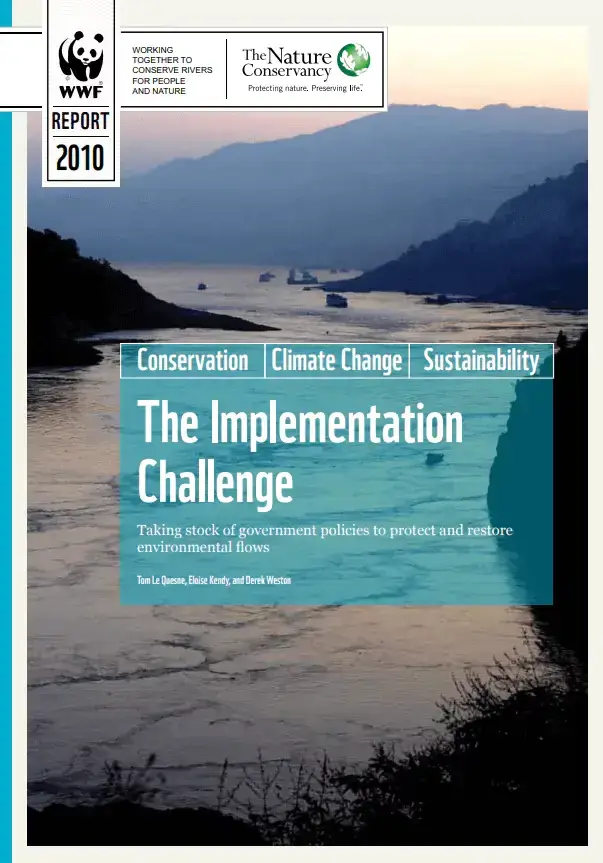Governments and water management authorities across the world have made significant and widespread progress in developing policies and laws to recognize environmental flow needs. While the concept of environmental flows long predates modern discussions of the subject, an understanding of environmental flows as a public policy imperative remains a comparatively
recent development. However, there is now a proliferation of debates around environmental flows, and significant current dynamism around the development of laws and policies to recognize environmental flows across the world. Indeed, we are aware of no major nation in which environmental flows are not now being discussed or incorporated into high-level water policy decision-making.
Despite this significant policy development, in the majority of cases environmental flow provisions remain at the stage of policy and debate rather than implementation. Indeed, the defining characteristic of many contexts globally is precisely the lack of progress in translating these policies and intentions into action. While there has been progress in some places in capping future water development in recognition of environmental needs, successful re-allocation of water or re-operation of infrastructure in systems that are already stressed has been infrequent.

